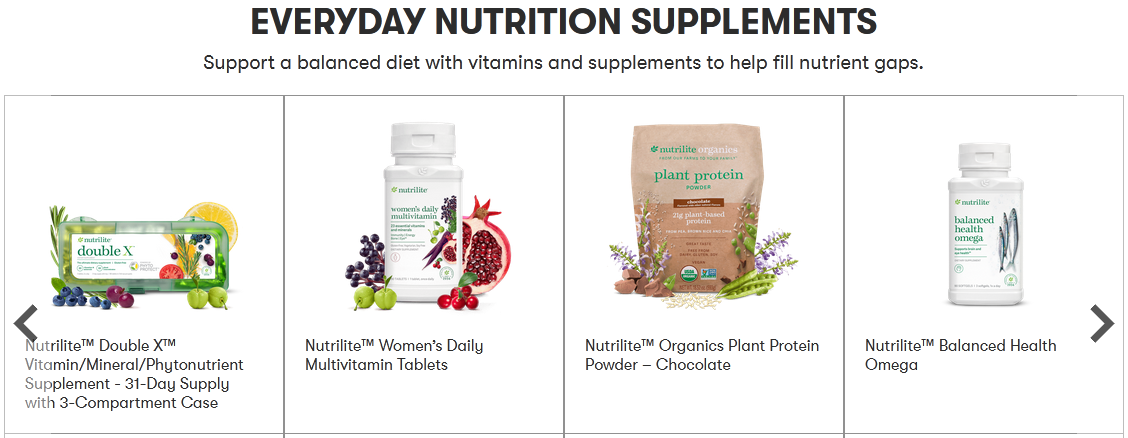What is the optimum Nutrition
Optimum Nutrition: To ensure our bodies function optimally and achieve
the best nutrition, it's essential to have a solid understanding of the
science behind nutrition. Nutrition is the study of how the body
utilizes nutrients from food, directly influencing our metabolism and
overall well-being.
The Basics of Nutrition
Nutrients, the fundamental components of nutrition, include carbohydrates, proteins, fats, vitamins, minerals, and water. Each of these elements plays a specific role in supporting our bodily systems and metabolism.

Carbohydrates, found in grains, fruits, and vegetables, serve as the primary energy source.
However, it is crucial to consider reducing the consumption of three commonly consumed refined carbohydrates—rice, corn, and wheat—for a healthier lifestyle. These grains, often staples, can have negative health effects when consumed excessively, leading to issues such as insulin resistance and inflammation.
Opting for nutrient-dense alternatives like quinoa or other whole grains becomes important for better nutritional intake and minimizing potential adverse effects.

Proteins, essential for tissue repair and immune support, are present in lean meats, poultry, fish, eggs, legumes, and dairy.
Healthy fats, vital for brain function and hormone production, can be obtained from sources like avocados, nuts, and olive oil.
Vitamins and minerals, categorized as micro-nutrients, play crucial roles in immune support, bone health, and enzyme and hormone production. Excellent sources of these essential nutrients include fruits, vegetables, whole grains, and dairy.
Water, often overlooked, is indispensable for transporting nutrients, regulating temperature, and supporting digestion.
Individual nutritional needs may vary based on factors such as age, sex, activity level, and health conditions. Continual learning about optimum nutrition is key to meeting these diverse needs.

Essential Nutrients for Metabolism
Metabolism, a intricate process converting food into energy within our cells, relies on essential nutrients. Macro-nutrients, which include carbohydrates, proteins, and fats, supply energy and support various bodily functions. Carbohydrates provide glucose, the body's primary energy currency, proteins aid in tissue repair and growth, and fats play a role in vitamin absorption.
Micro-nutrients, such as vitamins and minerals, are necessary in smaller quantities but are crucial for metabolic functions.
Vitamins act as coenzymes, supporting enzymes in metabolic reactions, while minerals serve as cofactors for enzymes involved in energy production.
These nutrients are essentials for optimum nutrition.
Water, an essential nutrient, facilitates chemical reactions, aids nutrient absorption, and regulates body temperature.
A balanced diet rich in vegetables, whole grains, lean proteins, and healthy fats ensures optimal metabolism.
Introducing a nutrient-packed juice crafted for well-being. This invigorating concoction is made with a juice extractor to ensure optimal extraction of seven key ingredients.
Spinach and kale form the foundation, rich in vitamins and minerals, providing a potent blend of magnesium and potassium for enhanced muscle function and vitality.
Celery and cucumber add a refreshing crunch and supply hydration along with additional vitamins.
Ginger introduces a zesty kick and anti-inflammatory benefits, complemented by a citrusy burst from a freshly squeezed lemon, infusing the juice with immune-boosting vitamin C.
To round off the flavors, a small green apple adds natural sweetness and more vitamins.
Prepared with a juice extractor, this green elixir is not just a drink but a nutrient-rich potion, precisely curated to fuel your body with essential elements, leaving you refreshed, revitalized, and ready for the day ahead.

the optimum nutrition:
Macro-nutrients and Micro-nutrients
Macro-nutrients (carbohydrates, proteins, and fats) and micronutrients (vitamins and minerals) are the foundation of metabolism. Carbohydrates provide energy, proteins are essential for tissue repair, and fats play a crucial role in energy and hormone production.
Micro-nutrients, obtained through a balanced diet, support immune function, energy production, and overall cellular function. Vitamins are organic compounds, and minerals are inorganic substances, both necessary for maintaining health.
Balancing the intake of macro-nutrients and micronutrients promotes optimal metabolism. Choosing complex carbohydrates, lean proteins, and healthy fats ensures a well-rounded diet and the optimum nutrition.

Nutritional Requirements for Different Lifestages
Nutritional needs evolve through different life-stages, impacting metabolism and overall health.
- Infancy: Breast milk or formula provides essential nutrients, and a diverse diet supports growth during the transition to solid foods.
- Childhood and adolescence: Increased energy needs for growth require nutrients like calcium, iron, vitamin D, and omega-3 fatty acids from a varied diet.
- Adulthood: Balancing nutrient intake based on factors like sex and activity level supports optimal metabolism. Portion control and caloric management become essential.
- Pregnancy and lactation: Specific nutrient considerations, including additional calories and vital nutrients, are necessary to support fetal growth and sustain milk production.
- Aging: Changes in metabolism and nutrient requirements emphasize the importance of calcium, vitamin D, vitamin B12, and fiber for bone health, cognitive function, and disease prevention.
Consulting healthcare professionals or dietitians to tailor dietary plans to individual needs is crucial. Embracing a wholesome diet and making informed food choices unlocks the secrets of optimum nutrition, unleashing the full potential of metabolism at every life-stage.
Unveiling the Sweet Menace: The Health Implications of Excessive Sugar Consumption
The widespread presence of sugar in modern diets has raised significant concerns about its impact on health. Excessive sugar consumption is linked to numerous health issues, making it crucial to understand and actively avoid its overuse.
One of the main concerns is the connection between high sugar intake and the increasing rates of obesity and related metabolic disorders. Sugary foods and beverages contribute to elevated calorie intake without supplying essential nutrients, resulting in weight gain and an increased risk of conditions such as type 2 diabetes.
Additionally, excessive sugar consumption is associated with cardiovascular problems, including heart disease. Diets high in sugar can lead to elevated blood pressure, inflammation, and unfavorable lipid profiles, all of which are risk factors for cardiovascular issues.
Sugar has also been implicated in the development of fatty liver disease, insulin resistance, and an increased likelihood of certain cancers.

Moreover, the impact of sugar on dental health is well-established. The consumption of sugary foods and beverages promotes the growth of harmful bacteria in the mouth, leading to cavities and gum disease.
This oral health deterioration can have lasting consequences if not addressed promptly. To safeguard overall health, it is crucial to be mindful of sugar intake and consciously make efforts to reduce its presence in our diets.
Choosing whole, nutrient-dense foods over sugary snacks and beverages, reading food labels to identify hidden sugars, and opting for natural sweeteners in moderation are essential steps in maintaining a balanced and health-conscious lifestyle.
By recognizing the adverse effects of excessive sugar consumption and actively making choices to limit its intake, individuals can contribute to their overall well-being and reduce the risk of various health complications.

NO TO SUGAR!

